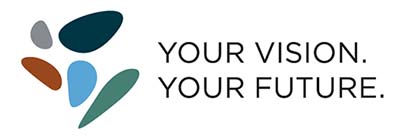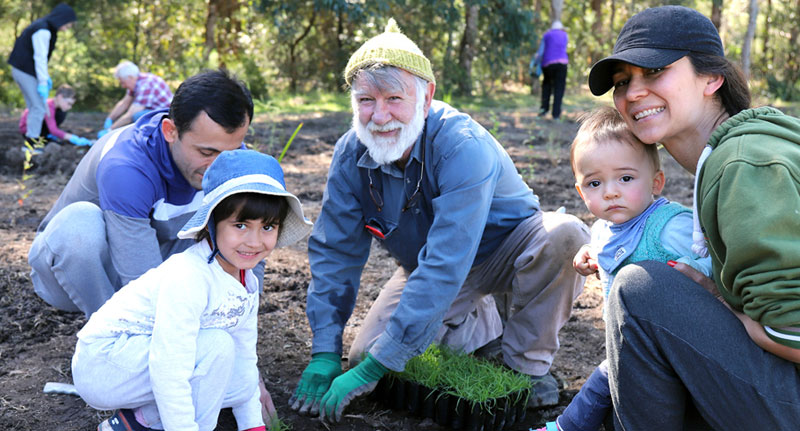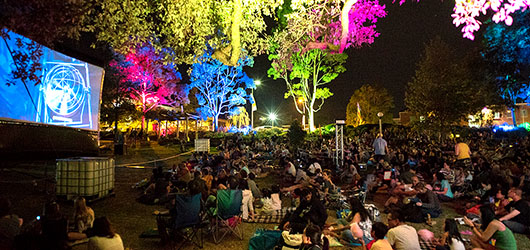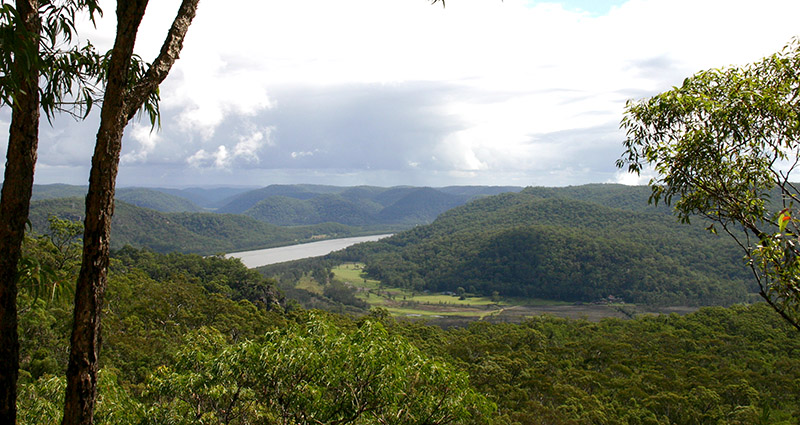Pest and Nuisance Animals
Attention rabbit owners!
Rabbit owners are advised that a wild rabbit control program will commence in early March 2025 with the release of a new variant of the rabbit calicivirus (RHDV). This program is being led by the Greater Sydney Local Land Services, with Hornsby Shire participating as part of a coordinated approach to manage the wild rabbit populations within the greater Sydney region.
Wild rabbits are a destructive agricultural pest, compete for resources and degrade landscapes. They are recognised as a key threat to Australian native animals, plants, and endangered ecological communities. Calicivirus has been used for wild rabbit control since 2017. It is species-specific, affecting only rabbits and poses no risk to native wildlife or other pets.
All vets in the area have been notified. It is critical that all pet rabbits be vaccinated against the virus. If unsure, pet owners should contract their local vet, or can find further information on the Australian Veterinary Association website: Vaccination of rabbits and ferrets.
For more information relating to wild rabbit control, please visit PestSmart and Greater Sydney Regional Strategic Pest Animal Management Plan 2024-2028, or contact Greater Sydney Local Land Services on (02) 4724 2100.
The law in New South Wales defines a pest animal as any non-native species (other than humans) having an adverse effect on the environment, the economy or the community (S.15, Biosecurity Act 2015). Pest animals commonly found in Hornsby Shire include wild rabbits, red foxes, cats, common mynas and common carp. Other less common or potential pest animals in the Shire include wild dogs, wild pigs, wild deer and wild goats. Native animals and domestic pets that may at times pose a nuisance, are not categorised as pest animals.
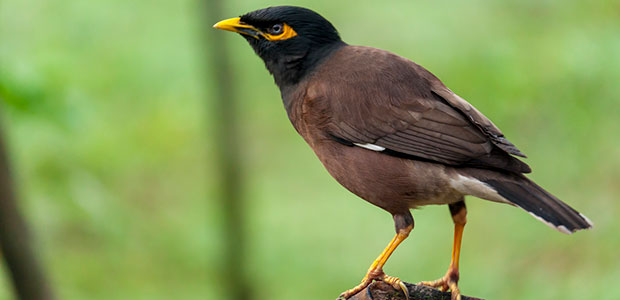
Native to Asia, the common myna (or ‘Indian’ myna) Acridotheres tristis is a pest animal frequently seen in built-up areas of the Shire, especially around shopping centres and school playgrounds.
Under the New South Wales Biosecurity Act 2015, all non-native animals (except humans) are assessed for the risk they pose to the environment, community and the economy. Everyone who deals with animals (including a landholder allowing them to roam on their land) must prevent, eliminate or minimise this impact, as far as is reasonably practicable. This is termed a persons’ General Biosecurity Duty and must be discharged (S.22 Biosecurity Act 2015).
Pest animals commonly found in Hornsby Shire, such as wild rabbits, red foxes, cats, common mynas and common carp are already widespread across Sydney and therefore pose a low biosecurity risk to the region. Their populations rise and fall seasonally and with the availability of food, and it is acknowledged that it is not reasonably practicable for individual landholders to make a lasting difference to the risk they pose. Instead, efforts should focus on protecting valuable assets such as rare and threatened native plants and animals, important gardens, sports fields, or poultry. Bear in mind, these efforts may prove effective in the short term, however they will need to be ongoing as new pest animals move into vacated areas.
Pest animal management at a regional level is guided by the Greater Sydney Regional Strategic Pest Animal Plan. Greater Sydney Local Land Services is the government agency that has a regulatory role under the New South Wales Biosecurity Act 2015 for vertebrate pest management. It plans and coordinates land-based pest animal management across the Sydney region, including the initiation of large-scale cross-tenure pest animal control programs such as 1080 fox baiting and the release of the rabbit calicivirus. Greater Sydney Local Land Services also builds the capacity of landholders to undertake pest animal management on their land.
Council has no regulatory power to force landholders to control pest animals on their land.
Report all pest animal sightings to FeralScan. If you see a less common or unusual pest animal, or something you can’t identify, take a photo (if possible) and contact Council through the Online Services Portal or phone 02 9847 6666. For best-practice information on how to manage pest animals on your property visit PestSmart or Managing pest animals in NSW, or contact Greater Sydney Local Land Services for advice.
Council’s ability to assist landholders to control pest animals on their land is very limited. For wild rabbits on small properties, Council has a few cage traps freely available for residents to borrow. Once captured, rabbits can be taken to a selection of local vets for euthanasia free of charge. To request a trap, contact Council through the Online Services Portal or phone 02 9847 6666. Bear in mind, as animals are trapped and removed, new rabbits may move into the vacated areas. Therefore, efforts may need to be ongoing until seasonal conditions change.
Report all pest animal sightings to FeralScan. If you see a less common or unusual pest animal, or something you can’t identify, take a photo (if possible) and contact Council through the Online Services Portal or phone 02 9847 6666.
Common pest animals such as wild rabbits, red foxes, cats, common mynas and common carp are already widespread across Sydney. Their populations rise and fall seasonally and with the availability of food, and it is acknowledged that it is not reasonably practicable for one land manager, such as Council, to make a lasting difference to the risk they pose to the environment, the economy or the community.
Instead, Council focuses efforts on protecting valuable assets such as rare and threatened native species, important gardens, sports fields and parkland. Shooting of wild rabbits by professional contractors and cage trapping may be periodically undertaken, however these efforts are effective only in the short term as new pest animals move into vacated areas.
Council, together with other organisations, and led by Greater Sydney Local Land Services, is also involved in broader and more effective initiatives such as the periodic release of biological control agents for rabbits.
Report all pest animal sightings to FeralScan. If you see a less common or unusual pest animal, or something you can’t identify, take a photo (if possible) and contact Council through the Online Services Portal or phone 02 9847 6666.
Council has no power to force landholders to control pest animals on their land. Greater Sydney Local Land Services is the government agency that has a regulatory role under the New South Wales Biosecurity Act 2015 for vertebrate pest animal management.
Although some native animals, such as brush turkeys, magpies, possums, flying foxes and snakes may at times pose a nuisance, all native birds, reptiles, amphibians and mammals (except the dingo) are protected by law (Sch.5. Biodiversity Conservation Act 2016). Harming, or attempting to harm a protected animal is a serious offence (S.2.1 Biodiversity Conservation Act 2016). For more information visit Protected species and Living with native animals.
Council will not take any action relating to nuisance native animals on Council land, unless they are posing a direct danger to humans.
Most invertebrates such as wasps, spiders, ants and termites are not protected by law in New South Wales. Some species, however, are listed as threatened and are protected (Sch.1 Biodiversity Conservation Act 2016). Native invertebrates play a crucial role in local ecosystems and should be respected and tolerated as much as possible. On private land, concerned landholders should seek the advice of a qualified pest controller. If the issues relate to European honey bees, contact North Shore Beekeepers Association who may be happy to remove them for you. For more information on invertebrate pests visit Insect pests.
Council will not take any action relating to invertebrates on Council land (including termites) unless they are posing a direct danger to humans.
Where domestic cats and dogs are causing a nuisance, Council officers may be able to act in certain circumstances (S.31 & S.32A Companion Animals Act 1998). For more information, see Pets, Dealing with barking dogs, Nuisance dogs and cats or contact Council through the Online Services Portal or phone 02 9847 6666.
Never release unwanted pets into the wild. It is illegal under Section 2.6 of the Biodiversity Conservation Act 2016, is cruel to the animal, and simply creates a problem for someone else. Instead, consider selling or giving the pet away. If this is not possible contact one of the following organisations:
In New South Wales a person must not have possession of, move, or release from captivity wild rabbits, red foxes, wild pigs, wild deer or wild camels (Cl.17B Biosecurity Regulation 2017). Exceptions to this are if the animals are for permitted exhibition or research purposes, form part of a lawful measure to control the pest, or if the animals are dead. If a landholder takes steps to encourage or keep these pest animals on their land, they are considered to be having possession of them.
This regulation does not apply to wild cats, common mynas, common carp, wild dogs or wild goats.
For more information about pest animals in Hornsby Shire, contact Council through the Online Services Portal or phone 02 9847 6666.
1080 Fox Baiting
The NSW National Parks and Wildlife Service are currently undertaking fox baiting in Lane Cove and Ku-ring-gai Chase National Parks. The aim of the program is not to eradicate foxes but rather to reduce their pressure on threatened fauna species.
DO NOT TOUCH BAITS OR EJECTORS
All baiting locations will be identifiable by signs.
Domestic pets are not permitted on NPWS Estate. Penalties apply for non-compliance.
1080 is lethal to cats and dogs. In the event of accidental poisoning seek immediate veterinary assistance.
For further information please call the local NPWS office on:
- NPWS North West Sydney (Lane Cove NP) Area office: 8448 0400
- NPWS after-hours Duty officer service: 1300 056 294
Updated 01/02/2025
